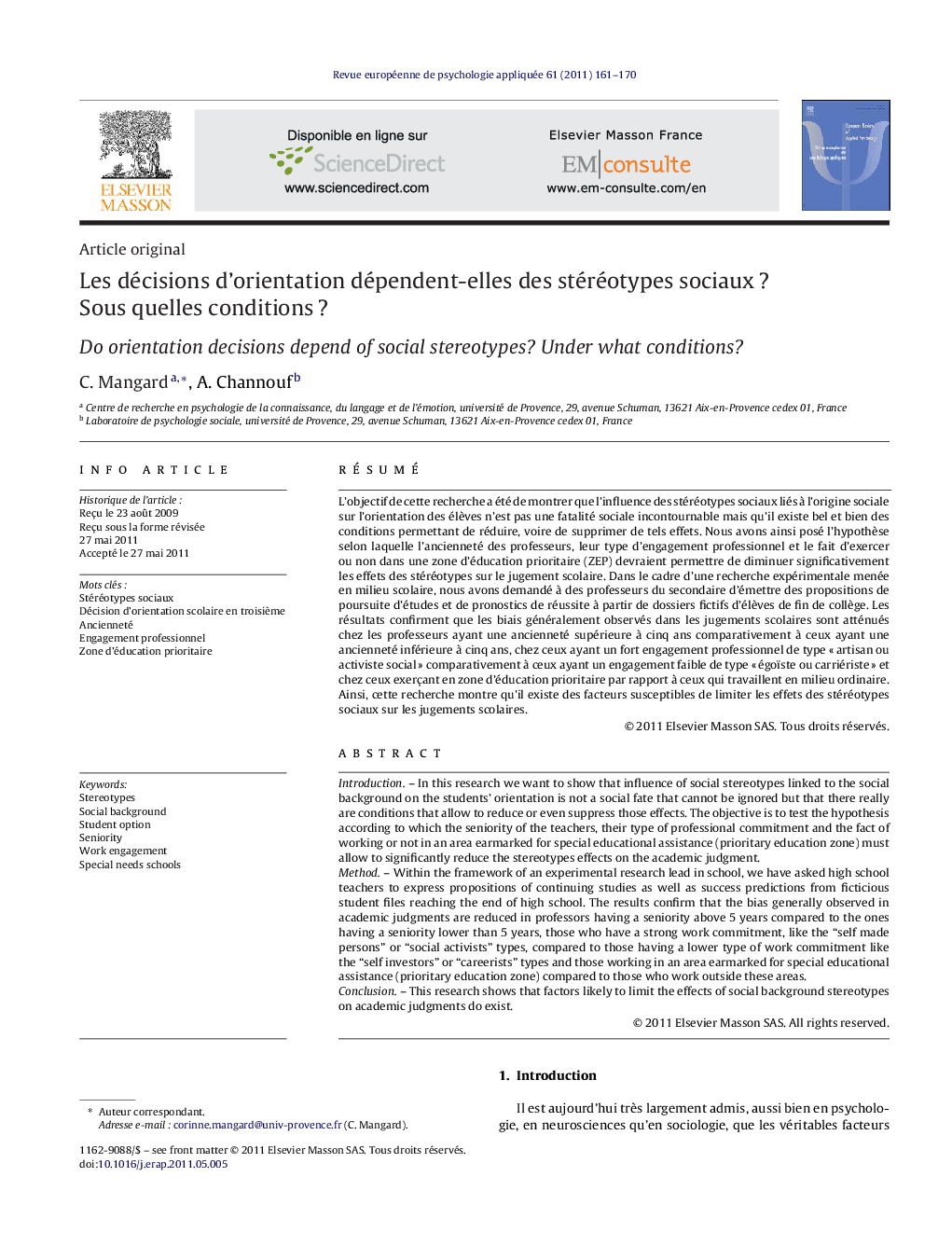| Article ID | Journal | Published Year | Pages | File Type |
|---|---|---|---|---|
| 895528 | Revue Européenne de Psychologie Appliquée/European Review of Applied Psychology | 2011 | 10 Pages |
RésuméL’objectif de cette recherche a été de montrer que l’influence des stéréotypes sociaux liés à l’origine sociale sur l’orientation des élèves n’est pas une fatalité sociale incontournable mais qu’il existe bel et bien des conditions permettant de réduire, voire de supprimer de tels effets. Nous avons ainsi posé l’hypothèse selon laquelle l’ancienneté des professeurs, leur type d’engagement professionnel et le fait d’exercer ou non dans une zone d’éducation prioritaire (ZEP) devraient permettre de diminuer significativement les effets des stéréotypes sur le jugement scolaire. Dans le cadre d’une recherche expérimentale menée en milieu scolaire, nous avons demandé à des professeurs du secondaire d’émettre des propositions de poursuite d’études et de pronostics de réussite à partir de dossiers fictifs d’élèves de fin de collège. Les résultats confirment que les biais généralement observés dans les jugements scolaires sont atténués chez les professeurs ayant une ancienneté supérieure à cinq ans comparativement à ceux ayant une ancienneté inférieure à cinq ans, chez ceux ayant un fort engagement professionnel de type « artisan ou activiste social » comparativement à ceux ayant un engagement faible de type « égoïste ou carriériste » et chez ceux exerçant en zone d’éducation prioritaire par rapport à ceux qui travaillent en milieu ordinaire. Ainsi, cette recherche montre qu’il existe des facteurs susceptibles de limiter les effets des stéréotypes sociaux sur les jugements scolaires.
IntroductionIn this research we want to show that influence of social stereotypes linked to the social background on the students’ orientation is not a social fate that cannot be ignored but that there really are conditions that allow to reduce or even suppress those effects. The objective is to test the hypothesis according to which the seniority of the teachers, their type of professional commitment and the fact of working or not in an area earmarked for special educational assistance (prioritary education zone) must allow to significantly reduce the stereotypes effects on the academic judgment.MethodWithin the framework of an experimental research lead in school, we have asked high school teachers to express propositions of continuing studies as well as success predictions from ficticious student files reaching the end of high school. The results confirm that the bias generally observed in academic judgments are reduced in professors having a seniority above 5 years compared to the ones having a seniority lower than 5 years, those who have a strong work commitment, like the “self made persons” or “social activists” types, compared to those having a lower type of work commitment like the “self investors” or “careerists” types and those working in an area earmarked for special educational assistance (prioritary education zone) compared to those who work outside these areas.ConclusionThis research shows that factors likely to limit the effects of social background stereotypes on academic judgments do exist.
